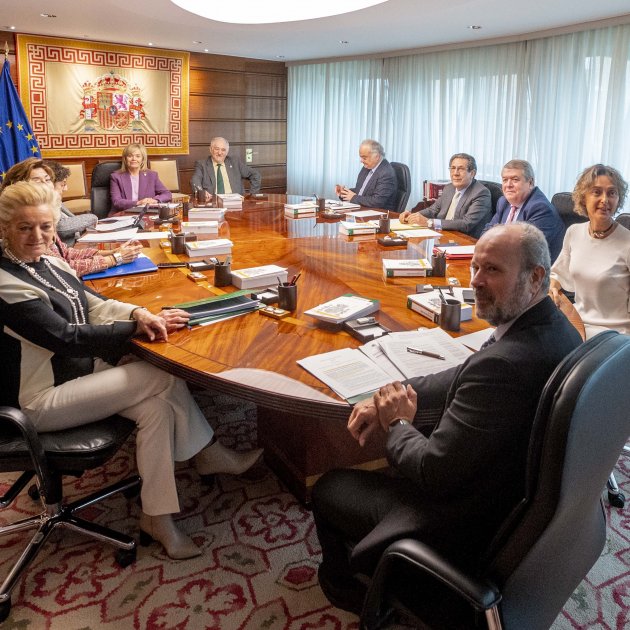The Spanish public prosecution service has asked the Constitutional Court to leave without effect the inadmissibility of the appeal that Catalan president-in-exile Carles Puigdemont and former minister Torni Comín presented to the court, which was considered in August by the so-called "holiday chamber" of the Spanish court and dismissed. In an exceptional decision, the court, whose majority consisted of two conservative judges, ruled on August 9th that it dismissed their appeal and justified taking the decision because the two Catalan politicians had asked for an urgent interim ruling. This Monday, the prosecutors' office has made public the arguments of its appeal to the Constitutional Court, in which it maintains that the court's holiday chamber acted "without legal coverage", and asks the court to maintain the appeals of Puigdemont and Comín until the full court hears them.
Puigdemont and Comín, through their lawyer Gonzalo Boye, had requested constitutional protection with the argument that their prosecution for the crimes of aggravated misuse of funds and disobedience, the revised charges brought against them this January by the Supreme Court in relation to the Catalan independence process, has violated their fundamental rights.
The holiday chamber, which deals with urgent cases during the month of August, consisted of three judges, including two conservative justices, César Tolosa and Concepción Espejel, who dismissed the appeal. The third judge, the progressive justice Laura Díez, cast a dissenting vote, expressing her disagreement with "the urgency" of the decision, a view which the prosecutors have now announced that they share.
Rules not followed
In its appeal, the prosecutors state that the Constitutional Court cannot include a decision like the one made with Puigdemont and Comín "which consists of the application of exceptional urgent measure to situations or for purposes that are not urgent".
The public prosecution service insists that the regulations of the Constitutional Court state that August is not a working period for the court and thus the holiday chamber will only act in exceptional cases, such as for people deprived of their liberty. At the same time, it indicates that even if a person asks for an interim injunction, it does not mean that the court must automatically accept it, but rather that an argument and justification is required, which - in the opinion of the public prosecutors - the judges who formed the holiday court that week did not fulfill.
"In the resolution, the court does not say anything about the interim injunction", denounces the prosecution's text, adding: "The legal reasoning contained in the resolution, does not properly justify, in view of the applicable regulations, that the court's holiday jurisdiction adopt the resolution."
They cannot be arrested
In addition, the prosecutors argue that there is no urgency and reproduces the argument of the dissenting judge: "the appellants are not in Spanish territory, the only place where the arrest warrants that they have appealed against can be executed; the appellants carry out their representative functions outside Spanish territory; and none of the appellants is currently deprived of liberty".
The prosecutors add that "it is necessary to add a subjective element that cannot be discarded: the risk that the urgent measures would prevent depends on the appellants' own conduct, to the extent that only if they voluntarily decided to enter Spanish territory, would this risk become effective, when it related to people who as is well-known have been abroad for years, evading the action of the judicial body that decides over their deprivation of liberty."
No support for Puigdemont
However, the prosecutors' text has also noted that its position does not mean that it defends that the Catalan politicians are right in their claims.
The text concludes that, in the final event, "it is possible" that the appeal lodged by Puigdemont and Comín could be dismissed or ruled inadmissible, and that "this office of the prosecution service will not oppose this". However, it reiterates "the transcendental importance that the inadmissibility, if appropriate, should be agreed upon by the competent body" goes directly to "the constitutional essence of the configuration, organization and functioning of constitutional jurisdiction". As a consequence, it asks the full Constitutional Court to rectify the decision of its three-judge August chamber.
